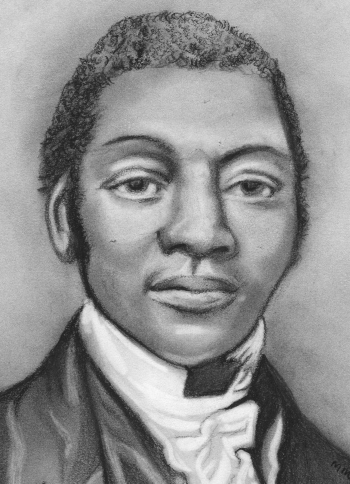 The National Abolition Hall of Fame and Museum commemoration ceremonies for the 2016 inductees will be held Saturday, Oct. 21, 2017, at NAHOF, 5255 Pleasant Valley Road, Peterboro. The inductees are Rev. John Gregg Fee, Beriah Green, Angelina Grimké, and James W.C. Pennington. This is the last year of the two-year induction-commemoration cycle.
The National Abolition Hall of Fame and Museum commemoration ceremonies for the 2016 inductees will be held Saturday, Oct. 21, 2017, at NAHOF, 5255 Pleasant Valley Road, Peterboro. The inductees are Rev. John Gregg Fee, Beriah Green, Angelina Grimké, and James W.C. Pennington. This is the last year of the two-year induction-commemoration cycle.
Beginning in 2018 inductions and commemorations will be completed in one year.
At 3 p.m. Saturday, Oct. 21, Christopher L. Webber, who nominated James W.C. Pennington to the Hall of Fame, will present Pennington: Pastor and Abolitionist for the Abolition Symposia.
Webber, the author of American to the Backbone: The Journey of James W.C. Pennington from Slavery
to World Leader, will use his research to present Pennington’s remarkable story. Pennington was born into slavery in Maryland in 1808. At the age of 19, scared and illiterate, James escaped from slavery. Moving finally to Brooklyn, he found work as a carriage man and took advantage of night schools.
In 1829, Pennington participated in the first Negro National Convention, of which he became the presiding officer in 1853. Pennington served congregations in Long Island, Hartford and Manhattan and traveled three times to England, Scotland and Europe as an anti-slavery advocate. He was so respected by European audiences that the University of Heidelberg awarded him an honorary doctorate, making him the first person of African descent to receive such a degree. Pennington was accepted as the first black student at the Yale Divinity
Pennington was accepted as the first black student at the Yale Divinity School and was accepted for ordination in the Congregational Church. April 26, 2014, Yale University celebrated the opening of the James W.C. Pennington Christian Ministry Center.
While serving a congregation in Hartford, Conn., Pennington became involved in the case of the Amistad captives and organized the first black missionary society to support them on their return to Africa. While in Hartford, he wrote the first-ever “History of the Colored People,” as well as a careful study of the moral basis for civil disobedience, which would be echoed decades later by Gandhi and Martin Luther King Jr. He was chosen to serve as a delegate to the Second International
He was chosen to serve as a delegate to the Second International Conference on Slavery in London, as well as to an International Peace Conference. Pennington helped organize a Legal Right Association for equal access to the NYC streetcar system. After the Civil War, he served briefly in Mississippi during reconstruction and then in Portland, Maine, and died in 1870 in Jacksonville, Fla., where he had worked with freed slaves after the Civil War. Often deeply discouraged, Pennington retained a delightful sense of humor, intellectual vivacity, and inspiring
Often deeply discouraged, Pennington retained a delightful sense of humor, intellectual vivacity and inspiring faith.
Webber is the author of books ranging from a guidebook for vestries to a study of Christian marriage. He has also written hymns included in several major hymnals in the United States and Canada. He is the author of Beyond Beowulf, a first-ever sequel to the English saga. He co-authored A Year with American Saints, a book of 365 stories of men and women who have shaped American life.
Webber, who has given lectures, readings and workshops on his books at libraries and on television in several states, including Cazenovia Public Library in 2016, lives in San Francisco, Calif. He grew up in Cuba and lived in Brooklyn, Tokyo, Bronxville and rural Connecticut.
He is a graduate of Princeton University and the General Theological Seminary in New York – with two earned degrees and an honorary doctorate from the latter. Webber is currently working on a biography of abolitionist Dr. James McCune Smith. Smith studied in Scotland in order to earn a degree in medicine.
